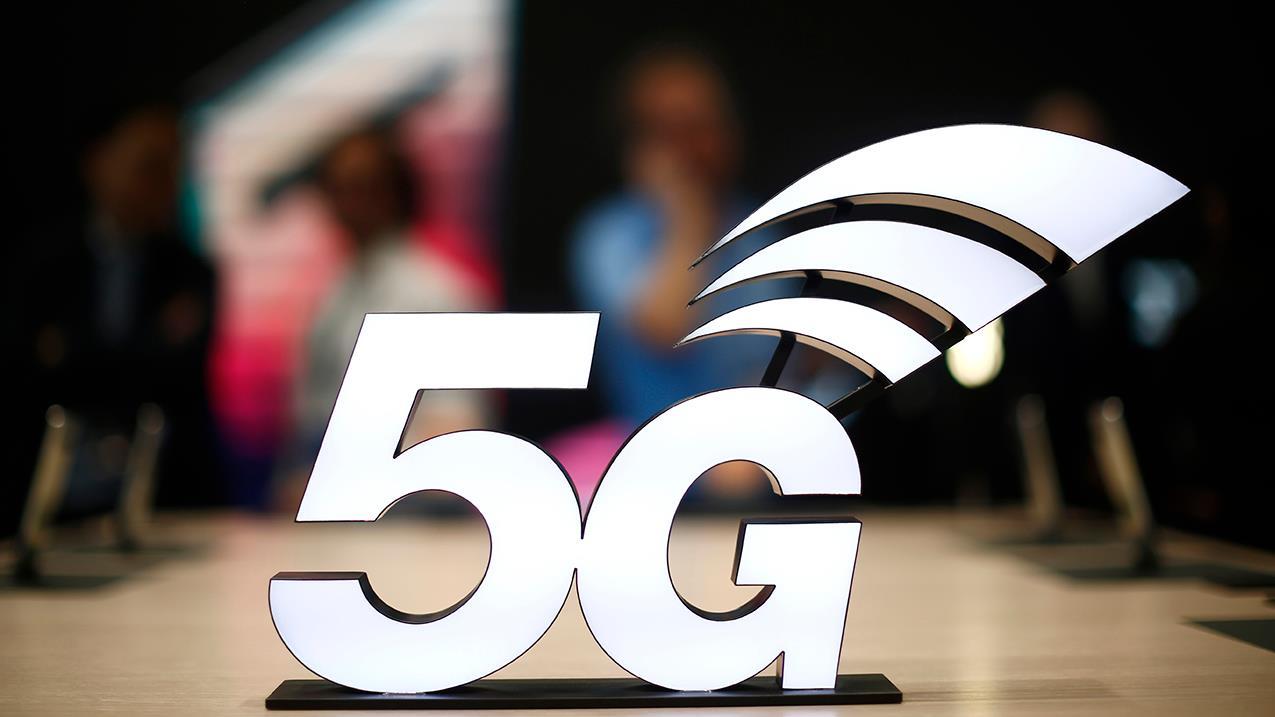T-Mobile, Sprint vow to fight state AGs if they get DOJ approval
T-Mobile US. Inc., and Sprint Corp., are prepared to fight the 10 state attorneys general suing to block their $26 billion merger if the U.S. Department of Justice approves the deal, FOX Business Network has learned.
The coalition of state AGs led by New York Attorney General Letitia James and California’s Xavier Beccera filed a lawsuit in Manhattan federal court on Tuesday to stop the deal on antitrust grounds, arguing the merger would reduce the number of major wireless carriers to three from four, and possibly lead to higher prices for consumers. The move briefly upended the negotiations between the companies and the DOJ’s Antitrust Division, which had been making progress toward a possible solution.
But on Wednesday, officials from T-Mobile and Sprint both resumed their consultation with the DOJ’s Antitrust Division, and importantly, developed a legal strategy to fight the state AG lawsuit, according to people with knowledge of the matter.
That strategy is to proceed with attempting to convince the DOJ to approve the deal, and if that happens, fight what the companies believe is a long-shot attempt to block the merger by the states, these people said. The companies believe that even if a court issues an injunction to block the deal, the state case is weakened by the fact it was filed before the DOJ finished its discussions with the companies about their agreement to make further concessions to address antitrust concerns, they added.
| Ticker | Security | Last | Change | Change % |
|---|---|---|---|---|
| TMUS | T-MOBILE US INC. | 197.39 | -4.47 | -2.21% |
| S | SENTINELONE INC | 13.11 | -0.12 | -0.87% |
Press officials from T-Mobile and Sprint had no comment. A DOJ spokesman also declined comment. A spokesman for the New York Attorney General had no immediate comment.
Even with the latest twist to hit the merger, officials at T-Mobile and Sprint believe a final decision from the DOJ’s Antitrust Division could come by next week.
In their negotiations with the DOJ, T-Mobile and Sprint have discussed concessions including selling wireless spectrum and additional businesses outside the Sprint’s Boost Mobile prepaid service. The companies agreed to sell Boost, build out their rural network, and not raise wireless prices for three years in order to receive approval from the Federal Communications Commission for the merger to proceed.
The state attorneys general "saw what the DOJ was likely to propose as a remedy and didn’t like it, so jumped the gun and sued."
The Trump administration has made the development of fifth-generation wireless networks, also known as 5G, both a national security and an economic objective. The development of such super-fast wireless networks are expected to be an economic boom, adding potentially hundreds of billions of dollars to the U.S. gross domestic product. The companies have also argued that a combined T-Mobile and Sprint will be better able to compete on price with wireless heavyweights AT&T and Verizon and gain ground in the area of 5G.
But DOJ staffers are eager to nix the merger on the grounds that fewer major carriers will lead to higher prices—the same argument made by the state AGs. They can be overruled by antitrust chief Makan Delrahim, who is said to be officially undecided but may be warming to the companies’ argument that the merger would not lead to high prices, particularly, after additional concessions are agreed upon.
Progress toward forming a set of concessions may be behind the state lawsuit, according to Boost founder Peter Adderton. The state AGs “saw what the DOJ was likely to propose as a remedy and didn’t like it, so jumped the gun and sued,” Adderton said Tuesday in an interview with FOX Business.
Another theory for the lawsuit is that the “states just got frustrated with the slowness of the process at DOJ,” said Craig Moffett of MoffetNathanson Research. “There’s a fair amount of pressure on DOJ to end this process,” he added.
An antitrust lawyer, who spoke on the condition of anonymity, said the state AGs' announcement may signal the DOJ is looking to approve the deal. “The state AGs want to get ahead of the DOJ decision… and undermine whatever action [the Department of] Justice is going to take." However, a ruling with concessions could “take the wind out of the state AG’s sails,” this person told FOX Business.
Another possibility is the DOJ is looking to file its own suit and the state AGs want to deny the Trump administration a pro-consumer victory by launching their lawsuit first.
In filing their lawsuit, the attorneys general blindsided Delharim and his staff, which wasn’t notified of the filing, this person added. Officials at the DOJ’s Antitrust Division were recently in negotiations to appease the state attorneys general and prevent state legal action from taking place.
FOX Business has also learned that the AGs are attempting to recruit other states to create the strongest possible case that might find a sympathetic judge to block the deal, or delay it indefinitely through an injunction. “If the states win their injunction, it’s not a slam dunk but it could make the merger messy,” Moffett notes, adding that an injunction could prevent the deal from closing, forcing one or both of the parties to walk away.
Still, legal experts say the states face an uphill battle in looking to kill the merger if the DOJ approves it.
Not only do states have fewer resources than the feds, they also have a higher bar to meet to prove their case: They must show the merger would cause “irreparable harm” whereas the FCC’s “general interest” paradigm and the DOJ’s mandate to keep markets competitive are much broader and less restricting, experts say.
CLICK HERE TO GET THE FOX BUSINESS APP
As the telecom deal continues to face opposition, some on Wall Street are looking at what may happen if the companies call it quits. In an unusual provision, T-Mobile is not required to pay Sprint the agreed upon $600 million break-up fee if Sprint’s debt doesn’t meet minimum credit ratings from the three major bond-rating services.
Sprint’s debt must have at least a “B-2” bond rating from Moody’s Investors Service, a “B” rating from S&P Global and “B-plus” from Fitch Ratings.
Sprint is the smallest of the major wireless carriers, and its finances are considered the most suspect contributing to a stock price that is just above penny-stock levels. Ironically, its shaky finances could help the deal gain approval; Delrahim told FOX Business in an April interview that he was considering the so-called “failing firm defense,” meaning he was weighing the argument made by company officials that if Sprint wasn’t purchased by T-Mobile it might fall into bankruptcy and the number of wireless carriers would be reduced.





















